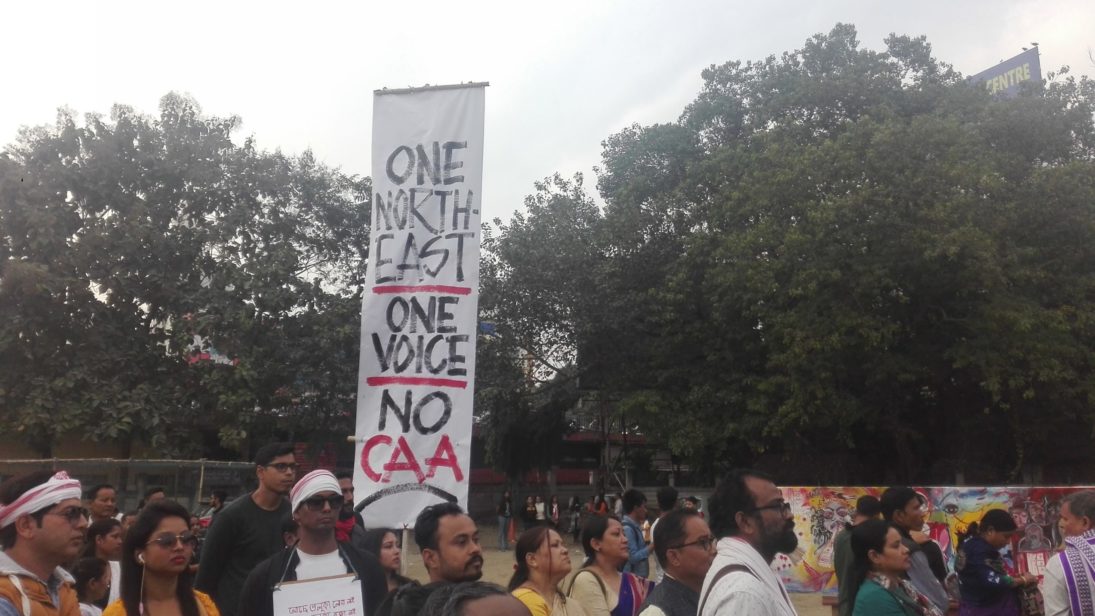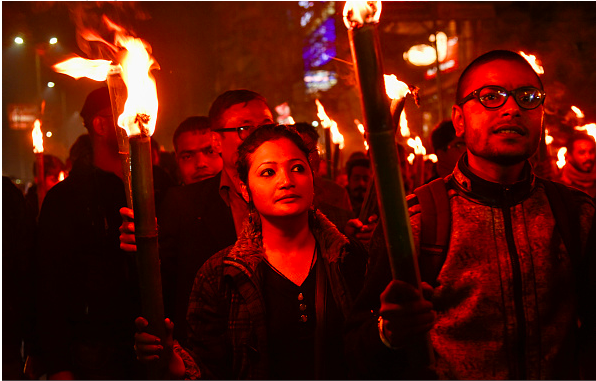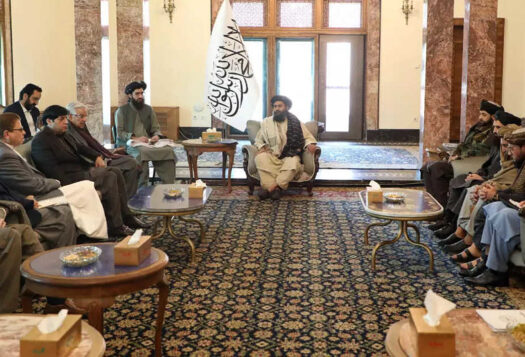
Since the Indian parliament passed the Citizenship Amendment Act (CAA) in December, large-scale protests have taken place across the country, and several states have refused to implement the law. The CAA allows for citizenship to be granted to those belonging to the Hindu, Sikh, Parsi, Jain, Buddhist, or Christian faith from Afghanistan, Pakistan, and Bangladesh who arrived in India before December 31, 2014. While the proponents of this legislation claim that it would provide humanitarian relief for persecuted religious minorities, critics allege that it is a harbinger of the unmaking of a secular India, violating the Indian constitution by making citizenship faith-based.
What is the Citizenship Amendment Act?
The current Citizenship Amendment Act (CAA) builds from India’s original Citizenship Act 1955, which provided for acquisition and determination of citizenship. According to the 1955 Act, citizenship can be availed through naturalization, descent, registration, birth in India, and if India incorporates any territory into its sovereignty. The recent amendment aims to protect persecuted religious minorities in neighboring nations and disciplining the conduct of Overseas Citizenship of India (OCI) holders. However, three major amendments have created a public uproar.
Clause 7D (d)(a) of the act allows for the cancellation of overseas citizenship for Overseas Citizens of India, in case of violation of any provisions of the act or any law as may be notified by the central government. Amendments to sections two and three allow registration for citizenship for Hindu, Sikh, Buddhist, Jain, Parsi, and Christian migrants from Pakistan, Afghanistan, and Bangladesh who entered India before December 31, 2014. In addition, the period of residence in India before applying for citizenship has also been reduced from 11 years to five years.
History of the CAA
Similar amendments were made to the Passport and Foreigner’s Act on September 7th, 2015, which allowed religious minorities from the same three countries as the CAA to remain in India without proper documentation. As a natural extension to the latter, the Citizenship Amendment Bill was introduced in the Lok Sabha in 2016. Owing to massive protests in Assam and opposition by Congress, the bill was referred to a joint parliamentary committee headed by Member of Parliament (MP) Satyapal Singh whose report was submitted in January 2019. Since the bill was made a part of the ruling Bharatiya Janata Party’s (BJP) 2019 election manifesto, the BJP passed the bill with its overwhelming majority in the parliament.
Following the passage of the CAA, the amendment has sparked fallout throughout India. Student unions, certain groups of academia, and opposition parties lashed out. Student protests in universities and public spaces have caught the eye of international media. They were initially confined to the northeastern part of India but quickly swelled across the country. Their intensity and stringent police action against them has drawn support from all the walks of life creating a nationwide uproar. Today, India sees two groups within, one supporting CAA and others against. Section 144, which generally prevents an assembly of four or more in an area specified by any executive magistrate was imposed to quell protests in Uttar Pradesh, Madhya Pradesh, Karnataka, and Delhi. Internet and messaging services were also shut down in several areas with student protests. Realizing the intensity and size of protests, the BJP has started door-to-door awareness campaigns. BJP ministers have even held pro-CAA rallies in which they reiterate that the act is not in any manner discriminatory against Indian Muslims.
The implications of the CAA can only be understood if one considers how the bill will interact with Assam’s National Registry of Citizens (NRC) which requires people to submit proof of their citizenship. Home minister Amit Shah said that the government would implement NRC across India before 2024. This might lead to significant opposition from regional parties along with national parties who already oppose the BJP. The NRC as a standalone act is largely seen as constitutional and essential to good governance, as it strengthens the National Population Register –without which the government cannot rollout public distribution schemes. In Assam, the CAA is viewed as an act that would decimate the state’s work to prevent illegal immigration as it allows the six religious minorities mentioned in CAA to become citizens. Assam’s final list in the NRC has excluded 1.9 million people, of which approximately half a million are Bengali Muslims. If all other excluded groups, including some tribal peoples, are identified as Hindus or another protected religious group under the CAA, only Muslims would fail to gain citizenship in Assam. This inherent religious inclusion-exclusion could lead to ethnic and communal clashes, according to dissent notes of Joint Parliamentary Committee report on Citizenship Amendment Bill (2016).

Contention around the CAA
Upon introducing the bill in the parliament Home Minister Amit Shah claimed that the BJP will implement the rest of its 2019 manifesto. Prime Minister Modi, in addressing the nation at Ram Leela Maidan of New Delhi, reiterated that that the act has been brought to provide security for the persecuted religious minorities in the neighboring countries and argued that the opposition was responsible for propagating myths that the CAA would target Muslims.
Meanwhile, opposition parties led by the Congress Party claim that the CAA is patently in violation of Article 14 of the Indian constitution, which provides fundamental right to equality. In addition, the opposition has argued that this act appears to be an arbitrary, executive decree made on the lines of religious inclusion-exclusion. This is because defining a minority group based on religion is not allowed by the Constitution of India. For instance, MP P. Chidambaram, a parliamentary member from India’s Congress party, has questioned the government on its intentions behind the CAA. He focused on the reason for specifying the three countries and six religions and for excluding other neighboring countries and religions from the act.
In addition, the opposition has considered legal recourse and challenged the CAA in the Supreme Court. Notable personalities such as senior Congress leader Jairam Ramesh, the Indian Union Muslim League (IUML), Trinamool Congress MP Mauha Moitra, Rashtriya Janata Dal leader Manoj Jha, and regional Telangana leader Asaduddin Owaisi are party to this legal action. However, based on the attitude of the Supreme Court, it is unlikely that the act would be deemed unconstitutional.
Moving Forward after the CAA
The course of protests and violence against students marks a path of no return. The incidents around protests show that the government is unlikely to back down from the CAA and the polarization created by the protests has even been used as an advantage by BJP for the 2020, Delhi elections. The current environment has become a mix of political drama, exploitation, helplessness, and fractured media.
Finally, the dangerous pairing of the CAA and the NRC will create unrest in Assam and parts of Northeast. Reports of wrongful detainment of people in Assam shows the unpreparedness of government and also it’s cluelessness of what to do following the NRC. If such unprepared implementation of NRC prevails across India, millions would be detained and could lead to massive humanitarian crisis. Besides, without an autonomous vigilance, there is high probability of misuse and wrongful detentions.
The continued protests and the government’s stringent steps to contain them threaten two possible outcomes: one being a path towards greater authoritarian tendencies as the government strives to combat dissent, and the other being continued bursts of unrest. Without greater transparency from the central government and clarification on the act’s constitutionality along with engaging all stakeholders through public discussion, the issue of the CAA seems unlikely to be resolved in the near future.
***
Click here to read this article in Urdu.
Image 1: Wikimedia Commons
Image 2: NurPhoto via Getty Images


